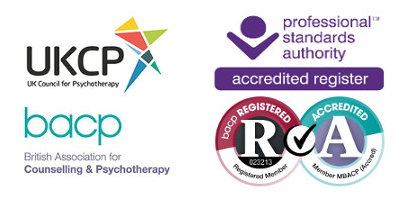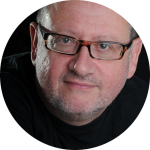Counselling for Depression in London
When you can’t shake the gloom and low moods, Therapy with Depression Counsellor Marcus helps
Depression is an extremely common problem, yet paradoxically if you are depressed you may feel very alone. It can seem as if no one understands what you are experiencing. Counselling for Depression will give you the space to express what is happening in your inner world, within a safe and supportive environment.
“If you’re patient and wait for the clouds to disperse, you will see the brightness of the moon.” Chinese saying
As an experienced psychotherapist Marcus has a wide range of methods at his disposal, to help you move on from your depressed state without the necessary use of drugs or medication. These include techniques which are modern updated versions of ‘Behavioural Therapy’, based on scientific brain research.
Am I depressed?
Everyone’s depression varies, but there are common signs and symptoms. If you’re going through several of the following experiences and can’t shake them off – if these phrases describe your normal, everyday existence – you may well have a degree of depression.
- Low mood, feeling flat, dispirited, down in the dumps or ‘blue’
- Hopelessness, pessimism
- Melancholy, dejection, gloom, despondency
- Suicidal thoughts
- Low motivation, feeling stuck in the doldrums
- Irritability, agitation
- Guilt, feeling useless, a sense of worthlessness
- Tearfulness, crying
- Difficulty in concentrating or making decisions
- Sleeplessness, insomnia, waking early, tiredness
- Aches and pains, lethargy, low energy (leading to avoidance and social withdrawal)
- Changes in appetite or low sex drive
- Lack of enthusiasm, lack of pleasure in activities you used to enjoy
What types of depression are there?
If you have suffered a severe loss or blow and have somewhat retreated, but not entirely withdrawn, from life, you can be described as having ‘situational’ depression. You’re in a pause place while your wounds mend – for however long that takes.
Another kind of depression is more ‘built in’ to the personality, with its roots usually in childhood (though genetic inheritance also plays a small part), and it can be slower to shift than situational depression. It can also initially appear to get worse in therapy before it gets better – for example, depression might emerge as an underlying state after you have undergone some therapy to address anger issues or for workaholism.
What causes depression?
Any of us can feel overwhelmed at some points in life. You probably know the feeling that you cannot possibly take on a single, extra thing. If this feeling is triggered in you constantly, over and over again, as a chronic experience, the effect on your nervous system is that you enter a chronic state of dorsal vagal shutdown (the ‘dorsal vagus’ is the nerve that’s designed to protect you from overwhelm). Your body and mind close in, withdraw, rather like a computer or TV in ‘hibernation’.
This state may have started in childhood, possibly originating with some shock or trauma, such as abuse or some significant or repeated neglect. Or it may be a response to more recent events such as bereavement, divorce, a relationship breaking up or a redundancy. Or it can be a combination of these.
In general, the mind remembers only what it needs to remember. Knowing exactly what the triggers were is not necessary in order to be successfully treated although, in the course of treatment, the source and origin of the depression may become more apparent to you.
Therapeutic methods in treating depression
Of the numerous therapeutic approaches to Counselling for Depression, the most widely promoted and advertised is Cognitive Behavioural Therapy (CBT). The methodologies that I have found most effective in treating depression are variants of Behavioural Therapy such as Somatic Emotional (Formative) Therapy and Somatic Experiencing Therapy.
How Behavioural Therapy for Depression works
To get the brain out of its frozen, shutdown state, you have to mobilise the body. At first, this needs extremely slow, gentle, rhythmic movements, because making too much physical and behavioural effort could re-trigger the overwhelm, and the depression would not then shift. We have to watch out for the tendency to ‘try hard’ or ‘overly effort’.
The part of the nervous system that calms and protects you (the parasympathetic) needs to be mobilised so that your brain learns you can manage activity without getting overwhelmed, and that it’s ‘safe to come out of hiding’.
How will Depression Counselling with Marcus help?
Marcus has many years of experience in working with different forms of Talking Therapy, Counselling for Depression and Behavioural Therapy. To support you in recovering from or reducing your depression, he incorporates into his work powerful, body-mind approaches for depression treatment (such as Pesso-Boyden Therapy, Formative Psychology and Somatic Experiencing) which are based on up-to-date neuroscience.
What simple steps can help me get through depression?
A person experiencing depression needs to get the parasympathetic nervous system moving, to get the brain out of its shutdown state, advancing in small ‘baby steps’. Even hoovering your home or a gentle run in the park will likely alleviate symptoms.
Reaching out to people deploys the ‘social engagement’ system in the brain (a function of the parasympathetic). That’s why it really can help a depressed person to feel better and break out of their isolation, if they can make contact with another person. This can, of course, include seeing a therapist or counsellor for depression.
These are some practical suggestions for managing depression:
- Walk or enjoy any other, simple form of exercise
- Get out into nature
- Eat a healthy, balanced diet
- Improve your sleep routine
- Pursue the hobbies and activities you enjoy
- Connect and reach out to (relatively) calm, nurturing people
Anger, anxiety and feeling depressed
Depression and anxiety are often experienced together, and they can be seen as two ends of a continuum. Anger is also often a feature of depression: sometimes it even seems like the ‘acceptable face’ of depression. Your relationships, especially your marriage or partner relationship, as well as work relationships, will probably be affected in ways that Depression Counselling will seek to help you with.
Alcohol, diet and depression
The relationship between depression and substance abuse is complex, but it is clear that alcohol in large amounts, and cocaine in any amount, are depressants. A sugary or fatty diet and a sedentary lifestyle are also likely to contribute to depression.
Seasonal affective disorder (SAD) and depressive disorders
S.A.D. is a relatively severe version of ‘winter blues’, which can be treated with ‘bright light therapy’. Other types of depression are listed in the manual of ‘disorders’ used by psychiatrists. If you feel these may be relevant to you, Marcus will explore with you whether you should consult a doctor or psychiatrist instead of, or in addition to, having Counselling for Depression.
Counselling for Depression in London with Marcus
Take the first step and contact Marcus to talk about counselling for coping with depression.
You may find some of these articles and resources on Help with Depression useful:
PDF | ALL IN THE BRAIN?
This very open, and to our thinking, brilliant letter by Richard Bentall, Professor of Clinical Psychology at Liverpool University is a response to Stephan Fry’s recent programme on exploration of manic depression, which is part of the BBC series on mental health, ‘In the Mind’.
Video | I had a black dog, his name was depression
Video | ‘How to get stuff done when you are depressed’ (Jessica Gimeno)
The Samaritans – If you are in crisis and need to talk to someone urgently: www.samaritans.org
ReThink Depression have produced a very useful booklet called:
“Back to Daily Life” a guide on cognitive difficulties associated with depression
Coping with Depression – For ideas on Self-Help Tips to Deal with and Overcome Depression: www.helpguide.org
Top Tips from ‘Big Boys Don’t Cry’ (Patrick Addis & Fabian Devlin) –
Live life from your gut instinct as it was created before the brain.
Take care of your nutrition – you don’t need to be a rabbit either!
Being depressed doesn’t make you less human. You feel – that’s human.
Watch and listen – let your eyes and ears take in good, uplifting content, so you thrive.
Go on a date with yourself. Treat yourself and enjoy your company, so you relax and can be you with everyone else. Detox your friendships, so you have a healthy team that picks you up, checks in on you and shows they care, but also advises you. If they don’t do these things, time for a detox.
BBC – This article looks at the rise in use of ‘Prozac’ and how it has become synonymous with depression: Read the full article.
SAD – An interesting and balanced article about seasonal affective disorder and light therapy: Read the article here.



